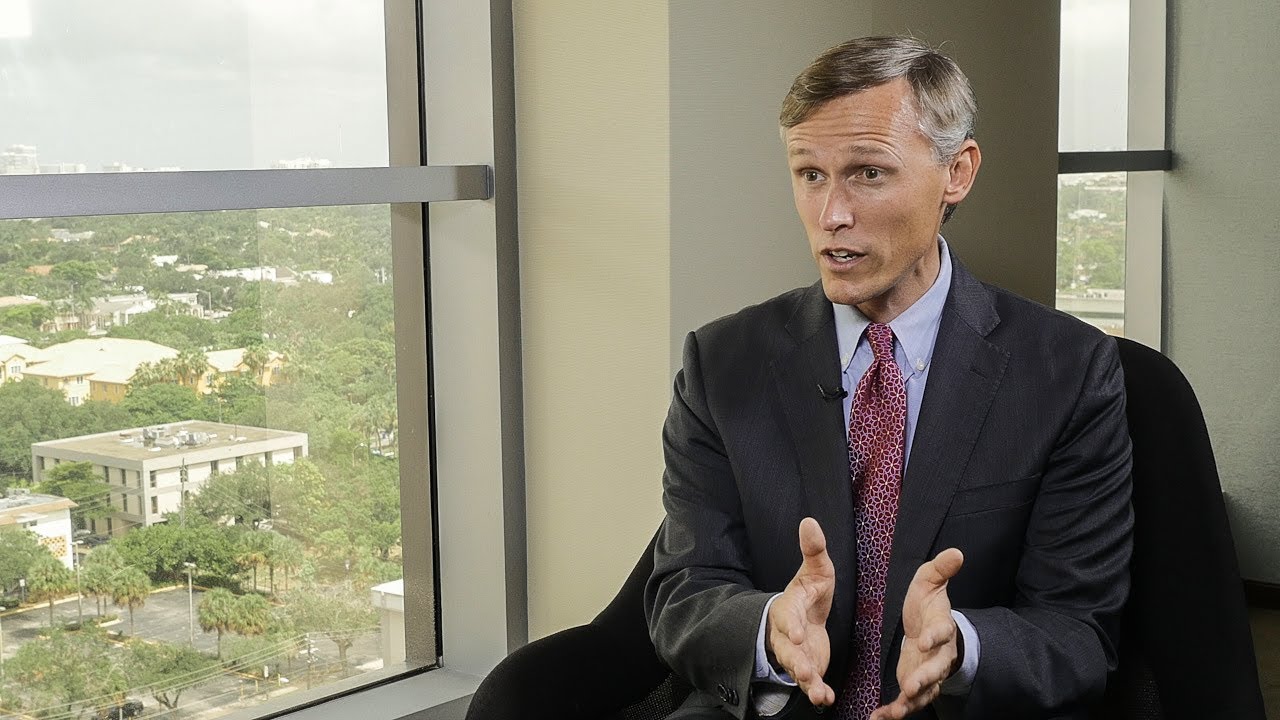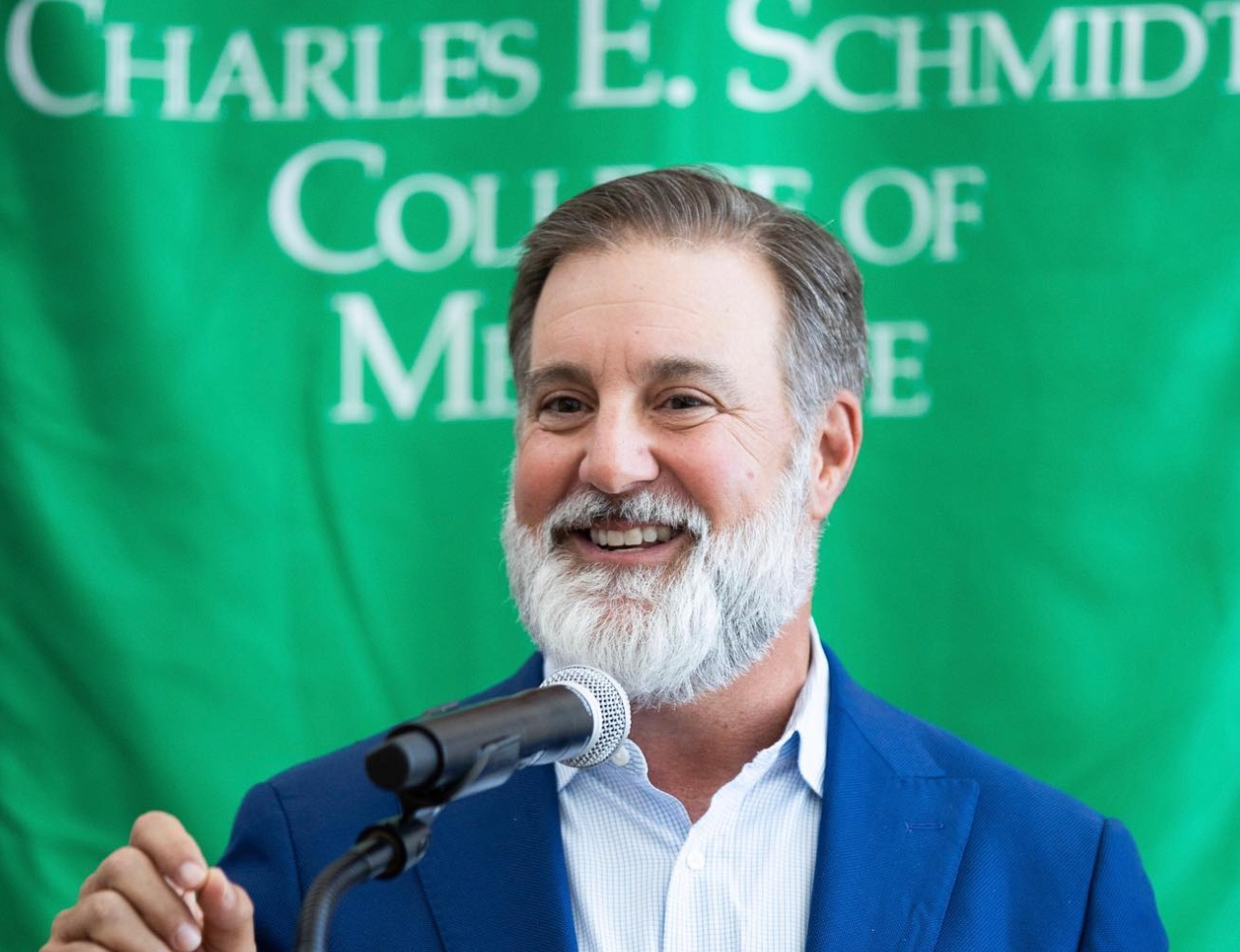Florida Atlantic University (FAU) finally has a new top executive: former House Majority Leader Adam Hasner.
The FAU Board of Trustees unanimously selected Hasner, who today works as a private prison company executive, to serve as the school’s eighth President.
He’ll take the job as soon as the state Board of Governors confirms him, a news release from the university said.
Hasner said in a statement that his primary focus will be ensuring students are given the best opportunities to succeed.
“Florida Atlantic University is a shining example of what a modern university can achieve — academic excellence, cutting-edge research, student access and success, all while maintaining a strong connection to the communities it serves,” he said.
“I am honored to be chosen to lead this incredible institution and work alongside its talented students, top-tier faculty, and dedicated staff to drive FAU’s mission forward. Together, we will continue to innovate, inspire and make a lasting, positive impact in the lives of our students, our community and the state.”
Hasner, a lawyer by training, was one of three finalists FAU identified last month through a rebooted presidential search. He is the only one among them without a background in higher education administration.
Also short-listed were Michael Hartline, dean of the College of Business at Florida State University (FSU), and John Volin, Executive Vice President of Academic Affairs and Provost at the University of Maine.
Dozens of students this month protested Hasner’s bid for FAU President, some waving signs that read “Protect Florida education” and “Students, not prisoners.” FAU College Democrats, which organized the protest, said Hasner would “make FAU the next battleground (for Gov. Ron DeSantis’) regrettable culture war.”
But Hasner also enjoyed support from other students, including members of Students Supporting Israel at FAU who believe he’ll combat antisemitism on campus and foster “a campus where all students feel respected, safe and free to express themselves.”
For his part, Hasner said he’ll “check partisan politics at the door.”
Hasner succeeds Stacy Volnick, who has served as Interim Vice President since John Kelly stepped down as President at the end of 2022 for a President Emeritus role with the university.
Hasner commended Volnick for her leadership over the past two years and her “remarkable service to Florida Atlantic spanning more than three decades.”
“She has provided invaluable stability to the university during challenging times,” he said. “I look forward to collaborating closely with her to ensure a smooth and successful transition, and to working alongside her and the Florida Atlantic faculty, staff, and supporters to advance the university toward excellence across all six campuses, from Fort Lauderdale to Fort Pierce, in the years ahead. Florida Atlantic is my hometown university.”
Hasner, a Palm Beach County native, earned his law degree from FSU. He served four straight terms in the House from 2002 to 2010, earning a reputation as one of the most conservative legislators in the chamber. In 2007, he became the first Jewish person to serve as Majority Leader. After leaving office, he unsuccessfully ran for the U.S. Senate and Congress.
He owned and operated a consulting firm for a decade before joining People’s Trust Insurance, where he worked for three years, first as Vice president of Corporate Development and later as Chief Marketing and Communications Officer.
Since 2016, his 11-page résumé said, Hasner has been the Executive Vice President of Public Policy for the GEO Group, a private prison company headquartered in Boca Raton.
He’s long been a supporter of FAU. As a lawmaker, he led efforts to secure funding for FAU’s Schmidt College of Medicine and sponsored legislation in 2006 and 2008 that in part laid the foundation for the school’s in-development Office of the Ocean Economy.
He also helped to secure $43 million for FAU’s College of Engineering building and has served on the dean’s advisory board for FAU’s College of Business, among other community involvements.
In May 2023, FAU honored Hasner with a plaque in its College of Medicine building, commemorating his “transformational vision and unwavering commitment” to the school.
FAU Board of Trustees Chair Piero Bussani said the process of choosing Hasner was “organized, transparent and efficient.”
“(The search committee) worked tirelessly to consider numerous highly qualified candidates, bringing us an excellent group of finalists to review,” he said in a statement. “I am proud of all the work they have done, and I am confident Adam Hasner will make an excellent President. I look forward to working with him to continue FAU’s amazing trajectory.”
As FAU’s de facto CEO, Hasner will oversee an institution with a $1.2 billion operating budget, more than 30,000 students, nearly 3,500 employees and over 170 degree programs offered online and across six campuses between Broward and St. Lucie counties.
Hasner’s selection Monday caps a more than two-and-a-half-year effort to pick a permanent FAU President. The school launched a national search for Kelly’s successor shortly after he resigned, but it hit a snag in March 2023 when Brevard County Republican Sen. Randy Fine told reporters that DeSantis’ Office encouraged him to pursue the post. DeSantis said Fine would be a “good candidate.”
FAU released its list of finalists four months later. Fine wasn’t on it. Hartline was, as were two others who didn’t make the short list this time around.
Within days, Florida State University System Chancellor Ray Rodrigues suspended FAU’s search, citing, among other things, a questionnaire at least one candidate received asking “if his sexual orientation was ‘queer’ and whether he was a ‘male or transgender male.’”
“These inquiries are wholly irrelevant, inappropriate and potentially illegal,” Rodrigues wrote in a letter to Brad Levine, then-Chair of FAU’s Board of Trustees, citing strictures in U.S. Equal Opportunity Commission regulations forbidding job application queries on sexual orientation and gender.
Rodrigues also said meetings, surveys, and unofficial votes by FAU’s search committee may have violated Florida’s Sunshine Law. A subsequent investigation by the State University System’s Inspector General, which concluded in December 2023, found that they did, and Florida’s Board of Governors ordered the search to begin again.
FAU restarted the search last June.
Post Views: 0

 Entertainment8 years ago
Entertainment8 years ago
 Entertainment8 years ago
Entertainment8 years ago
 Politics8 years ago
Politics8 years ago
 Tech8 years ago
Tech8 years ago
 Tech8 years ago
Tech8 years ago
 Tech8 years ago
Tech8 years ago
 Politics8 years ago
Politics8 years ago
 Tech8 years ago
Tech8 years ago










